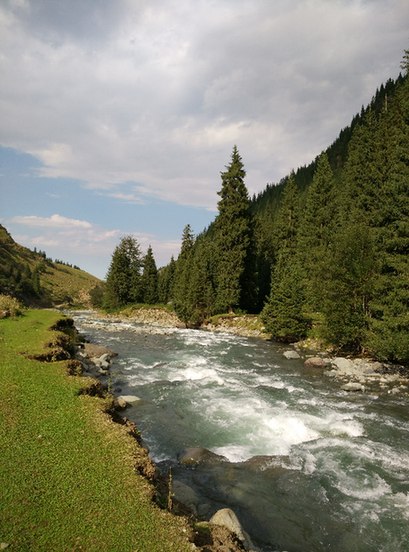Extend your summer while in Jimsar
china.org.cn / chinagate.cn by Hai Peng, August 18, 2016 Adjust font size:
The pass is also legendary because in the year 129 BC, the Western Han Dynasty envoy Zhang Qian became the first literate Chinese to make it from one side of the forbidden Tianshan Mountain to the other, using a guided caravan while continuing his mission of connecting the Western Han capital Chang'an (today's Xi'an) with kingdoms in the Ferghana Valley (in today's western Uzbekistan and northern Afghanistan). His year-long odyssey later flooded Chinese historical records of many succeeding dynasties with a name that is coming back to life today – the Silk Road.
The Jushi Pass starts the narrative of this lonesome hiking trail. But the trail gets very noisy as one goes deeper into the mountains. The creek along the trail is musical. Birds of various kinds strain their voices to attract a mate. But more thunderous is the sound of one's own mind. That Genghis Khan led his Calvary with the curved Mongolian swords is a visual image that does not go away easily. Horse feet kick dirt around. Captains swear at their soldiers. All that noise marches ahead of me.
Jimsar's country expanse and mountain trails are exhilarating. But the prefecture also possesses a tragic beauty similar to that of Aleppo in Syria or the Aztec cities in Mexico. It is an ancient town in ruins. The Tang Dynasty (618AD-907AD) established Jimsar as the Beiting Military Viceroy's Office (北庭都护府), a military apparatus whose jurisdiction covers the whole Junngarr Basin Region to the north of the Tianshan Mountains. Remains of the old city wall are still visible in a huge expanse of abandoned farming fields. But if one finds his excitement dulling away by the monotonousness of the undying rammed-earth wall, the discovery of a 20-meter tall rammed-earth temple full of incredible grotto arts –which offer a glimpse into the lives of the ancient Uyghur people before their migration and Islamification – will be as pleasantly surprising as a rain storm in the desert.
